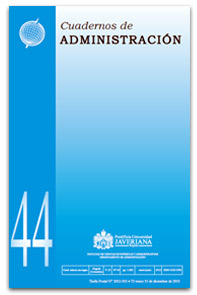Family business performance: evidence from Mexico
Published
Jun 1, 2012
Almetrics
Dimensions
##plugins.themes.bootstrap3.article.details##
Abstract
Based on the work of Anderson & Reeb (2003), the current paper aims to examine whether, under the peculiar influence of the Mexican corporate system, there are differences in the performance of family and non-family firms. The authors propose an analysis that allows conducting a comprehensive study and comparison between companies with different ownership structures (family vs. non-family firms), differentiated by heterogeneously developed governance patterns. Likewise, the effects of the degree of ownership concentration on performance are also analyzed. Moreover, evidence is shown of contrasting relationships between governance mechanisms and performance in family and non-family firms. Results are consistent with those of Anderson & Reeb (2003).
Keywords
Desempeño empresarial, propiedad familiar, empresas familiares, concentración de la propiedad, gobierno corporativoFirm performance, family ownership, family firm, ownership concentration, corporate governanceDesempenho empresarial, propriedade familiar, empresas familiares, concentração da propriedade, governo corporativo
References
How to Cite
Espinoza Aguiló, T. I., & Espinoza Aguiló, N. F. (2012). Family business performance: evidence from Mexico. Cuadernos De Administración, 25(44). https://doi.org/10.11144/Javeriana.cao25-44.defe
Issue
Section
Artículos


